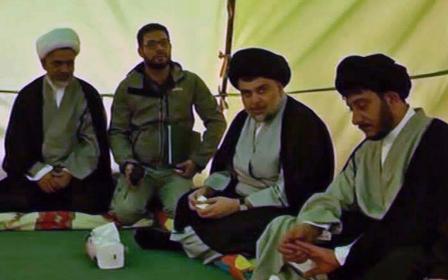Iraqi finance minister sacked amid corruption probe
Iraq's parliament removed the country's finance minister from office on Wednesday over corruption allegations, a move that risks further destabilising the major oil producer's fragile economy as it struggles with a huge budget deficit.
Parliament voted 158-77 to withdraw confidence from Hoshiyar Zebari, two MPs said, after questioning him last month about alleged corruption and misusing public funds, which he denies.
"The finance minister was removed during a secret voting session," MP Ammar Toma said.
Abdulrahim al-Shammari, another MP, confirmed that parliament had voted to remove Zebari.
Iraq's economy, which relies almost exclusively on oil revenues, has been battered by a drop in global crude prices and the costs associated with the war against Islamic State, which seized a third of the country in 2014.
Sarhan Ahmed, a member of parliament's finance committee, said the decision would "shake confidence" between the IMF and the Baghdad government.
"Today's move will undermine the ongoing efforts by Iraq to convince the IMF and other lenders it has a stable economic and political atmosphere," Ahmed told Reuters.
Zebari could not immediately be reached for comment. He has denied the allegations of corruption.
Politicians voted on 25 August to sack and impeach Defence Minister Khalid al-Obeidi, who had also been questioned over alleged corruption.
Interior Minister Mohammed al-Ghabban resigned following a bombing in central Baghdad that killed more than 300 people in July, and the prime minister, Haider al-Abadi, announced that he had also accepted the resignations of six other ministers.
Abadi called in February for the cabinet to include technocrats, but has faced major opposition from powerful political parties that rely on control of ministries for patronage and funds.
Parliament approved five new ministers in August after months of delay, but the powerful defence and interior posts remain unfilled.
Stay informed with MEE's newsletters
Sign up to get the latest alerts, insights and analysis, starting with Turkey Unpacked
Middle East Eye delivers independent and unrivalled coverage and analysis of the Middle East, North Africa and beyond. To learn more about republishing this content and the associated fees, please fill out this form. More about MEE can be found here.




